When it comes to success, sometimes timing is everything. Connections help too.
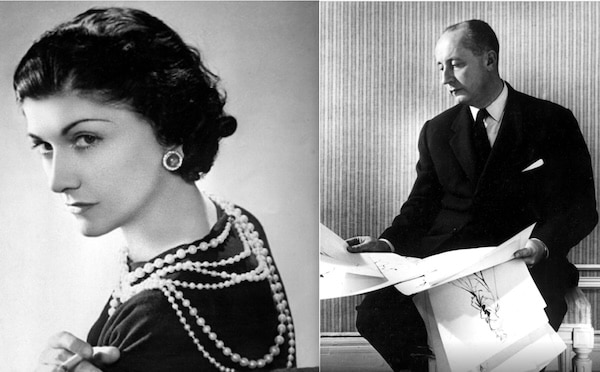
Such is the case with Gabrielle “Coco” Chanel and Christian Dior. Both are featured in the somewhat fictional streaming show “The New Look” as rivals. Who won their contest? Let’s take a look.
Chanel worked her way up from learning to sew in an orphanage to an entertainer and cocotte (kept woman) to mistress of a wealthy cavalry officer. Between him and her next paramour, a polo player, she adopted a sporting life and began wearing clothes suitable for the upperclass equestrian set.
These wealthy men sponsored, first, her hatmaking ideas, then her sporty clothing designs. The timing was perfect. It was World War I. Women were moving into the work place and needed practical clothes. The fine fabrics of the previous Belle Epoque were hard to find. Chanel used the only fabric readily available, knit jersey used to make underwear, and turned it into a line of easy to wear dresses.
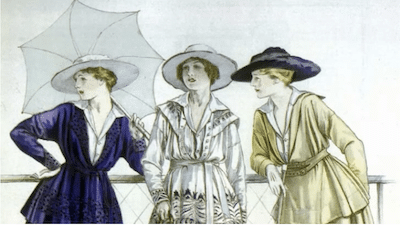
Her sponsors helped her promote her designs and took her to resorts where her boutiques could command high prices. Her next set of rich lovers helped her buy her landmark boutique, 31 rue Cambon, in Paris and develop her real money maker, Chanel No 5 perfume.
She was credited with creating the boyish look of the cardigan jacket and short skirt. But Jean Patou and Paul Poiret created much the same before her. She was credited for the little black dress. But other designers were moving black from funerals to evening wear before her. It was her connections that got her on the 1926 Vogue magazine and made the LBD a “uniform for all women of taste”.
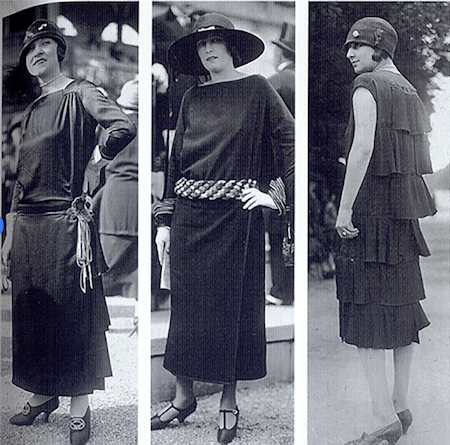
With World War II, she closed her shops, moved to the Hotel Ritz and began an affair with a Nazi. Her collaboration forced her to move to Switzerland at the end of the war. She lost her sponsors. Her moment was over.
Enter Christian Dior.
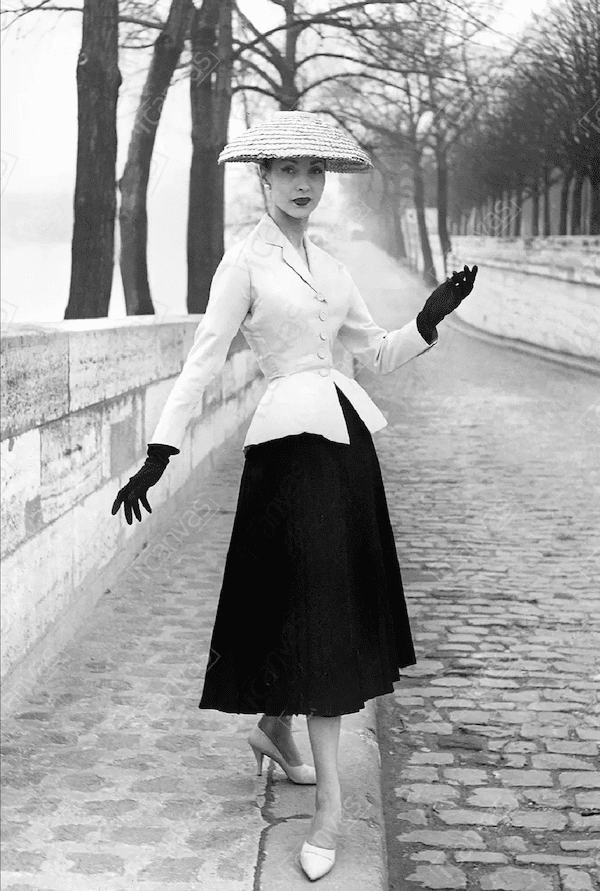
The era of wartime rationing and boyish looks was over. The desire to wear yards of fabric in feminine silhouettes had begun. His moment had arrived. It was called the New Look.
As a dress designer for, first, Robert Piguet then Lucien Lelong, he too had designed for Nazi wives but he was not the collaborator Chanel had been. After all, we are all creatures of the time in which we live.
After the war, with the backing of a wealthy textile manufacturer, he launched his own brand with a first collection of 90 garments that landed him on the cover of Harper’s Bazaar. His designs led Paris and, thus, world fashion for the next ten years.
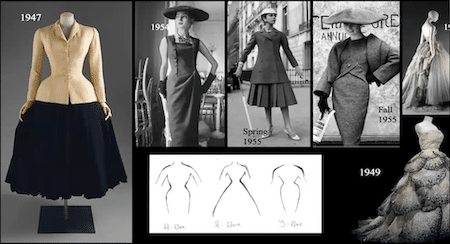
Chanel was not ready to give up the fight. She reasoned that women wanted to breathe. Not every woman wanted to wear a tight girdle with a nipped in waist and padded bra. With her perfume fortune and her connections at Vogue magazine, she came back in 1954 with her trademark boxy cardigan jacket and straight skirt.
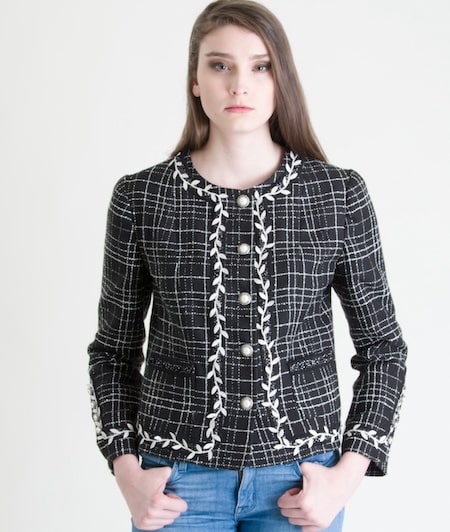
So who won?
In 1957, three years after the return of Chanel, Christian Dior died of a sudden heart attack. But just two years before, he had chosen a 19-year-old protegè to replace him. Timing is everything. That person was Yves St Laurent, often considered France’s best fashion designer. Under his leadership, Dior became an international brand with 245 boutiques worldwide. The brand is now owned by LVMH and chaired by Bernard Arnault.
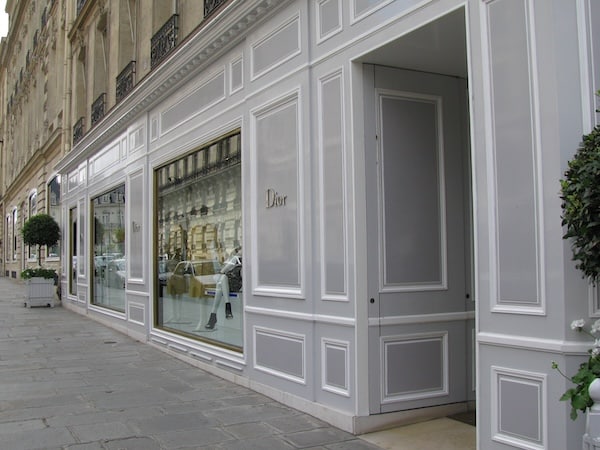
In 1971, Chanel died. Shortly after, established designer Karl Lagerfeld took over as creative director. Chanel is now owned by the Wertheimer Corporation who had the good timing to purchase rights to Chanel No 5 when it was first created in the 1920s. There are 310 Chanel boutiques worldwide.

So in the end, both won.
Thanks to good timing and connections, both Chanel and Dior drive our sense of fashion more than century after they first began designing.
————————
Want more? Here are all the things Chanel & Dior knew to do — and where we have a few spots left in our Spring 2024 design classes.
History of Fashion
Tuesdays, April 16-May 21, 6-9 pm
Meet who-is-who in the fashion world and do a little name-dropping.
Adobe Illustration
Weds, April 17-July 3, 6-9 pm
Express yourself and your fashion ideas the modern way — with the right digital tools.
Concept & Development
Thursdays, April 18-July 11, 6-9 pm
Create a cohesive idea so you can start patterning and sewing your collection.
Flats & Techs
Mon, April 15-July 8, 6-9 pm
Get down to the details in your illustrations so you can give specific directions for making your garments.
Innovative Design
Wednesdays, April 17-July 3, 6-9 pm
Break through the boring and stretch your mind create to innovative, wearable silhouettes. Now you are ready to show your results in a fashion event.
Materials Development
Wednesdays, April 17-May 22, 6-9 pm
Don’t be stuck with someone else’s ideas. Learn how to invent, create and use your own fabrics and findings.
Graphic Design
Tuesdays, April 16-May 21, 6-9 pm
Manipulate color, artwork, images and fonts to make your own designs for fabric prints and everything else you need for your fashion business.
Pants & Jeans
Wednesdays, April 17-May 22, 2-5 pm
Chanel made pants. So can you. Choose your pattern: jeans, flares, high-rise or low-rise and learn how to fit and sew it to suit your style.
Classes start mid April.
###




